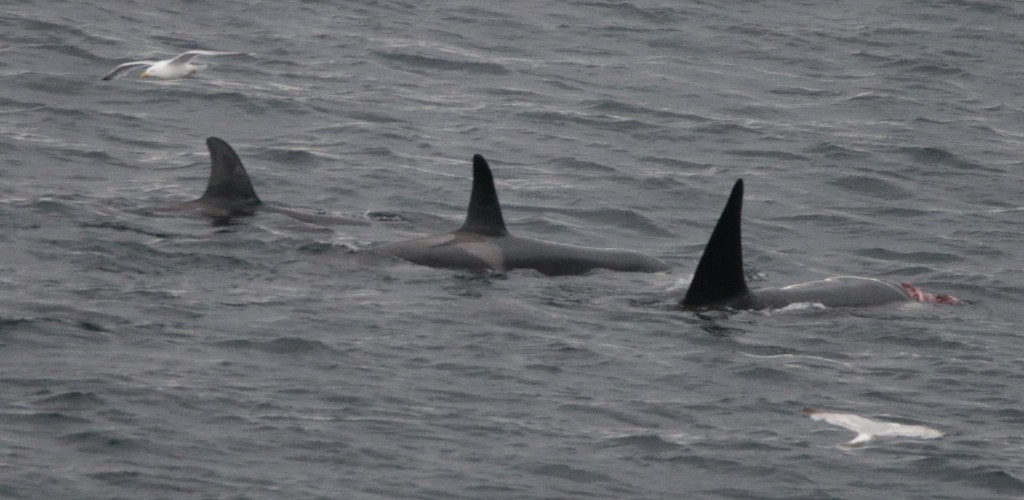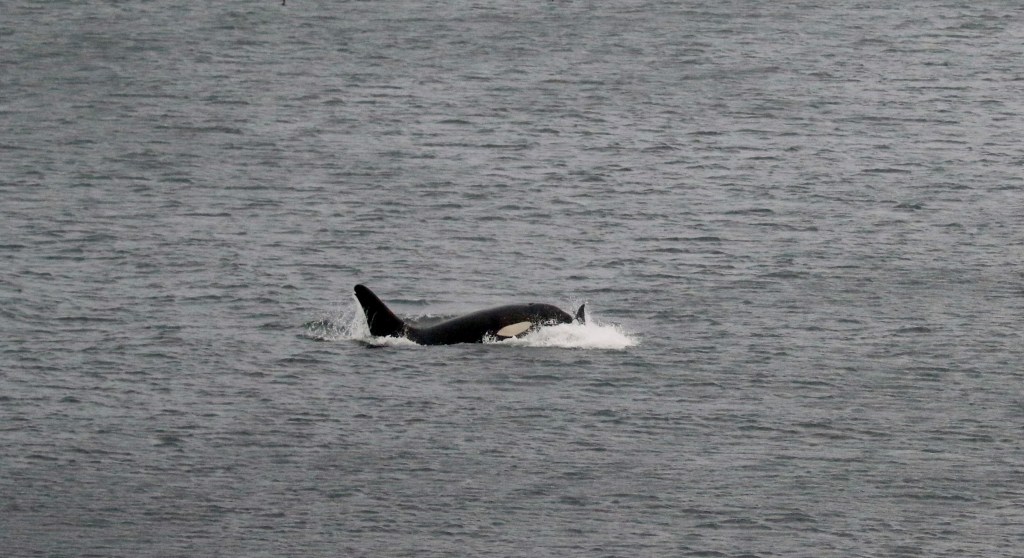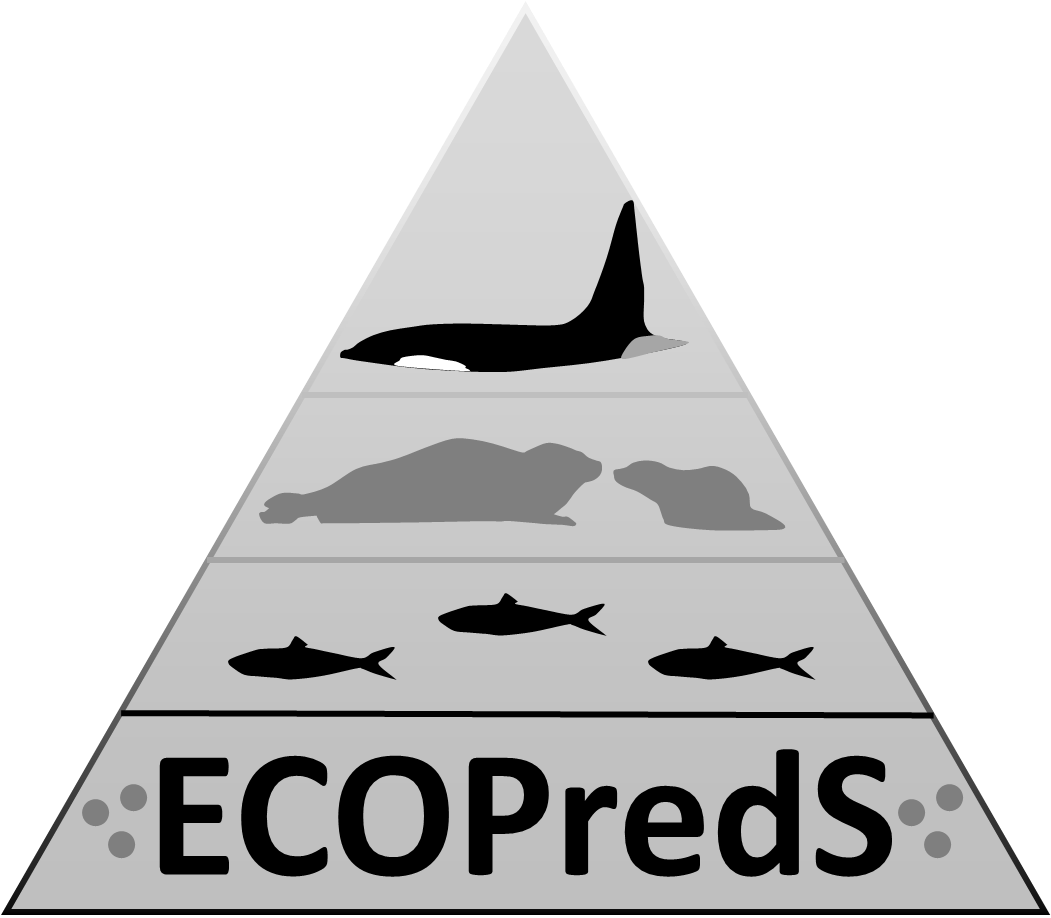Have you been lucky enough to watch killer whales in Scotland? Or do you enjoy watching seals in areas visited by killer whales? Do you have images or footage of killer whale foraging behaviour? – Either way, we would love to learn from your observations and recordings.

We are looking for sighting reports and image/footage of killer whale foraging behaviour – which could be simply patrolling coastal waters, swimming past a seal, or attempting to capture seals or other prey species. These data will help us to understand 1) their foraging effort (when and where they search for prey), and 2) diet composition when in coastal waters – what proportion of encounters involve grey seals, harbour seals, or other species such as as harbour porpoise.
When getting involved for your first time, we ask you to first read the participant information and email ecopreds@st-andrews.ac.uk. In your email, please confirm that you are happy with those points in the consent form that apply to you: A) all participants, B) photo/ videographers, C) qualified volunteer drone pilots. We will then get back to you with a debrief, and respond to any questions that you may have. Sightings can also be submitted using the online form (link below).
Images or footage
We are interested in images and footage from around the entire Scottish coastline. To contribute existing, “old” images or footage to the study (defined as prior to 1st April 2021), we ask that the flights followed these guidelines for retrospective footage to ensure they were collected in a legal and responsible manner.
To contribute more recent or future images or footage (1st April 2021 and after) to the project as a volunteer drone pilot with a CAA qualification, we ask you to follow the ECOPredS Standard Operating Procedure (SOP) for drone flights. Please note that these guidelines were updated in May 2023, raising the minimum recommended drone altitude above all marine mammals to 30 metres. The SOP was designed and has been updated by researchers and wildlife professionals to not only ensure legal and responsible drone flights, but also animal welfare and consistency in scientific data collection. Please help us promote responsible practice when using drones to view wildlife and share our guidelines!


Whale sightings and seal monitoring
We welcome all killer whale sightings, but our recording forms are particularly designed for adding information about their prey species too. We are also interested in repeat sightings of the same individual and its associated group. These “focal follow” observations help us estimate how much killer whales spend time in different activities (their activity budget) and how many seals may be affected as a result. Even when killer whales are absent, observations of their coastal habitat and seal prey recorded on the “seal monitoring form” are a valuable contribution to the project.
To submit visual observations, please read the observation protocol carefully and use the online forms to submit the data (seal monitoring form, whale sighting form). To quickly add a sighting of the same group of whales within the same day, please use the “Follow-up” form.
If you prefer, you can also use printed forms (pdf here), but please remember to return both the consent and observation forms. Either 1) email pictures/scans of the filled pages to ecopreds@st-andrews.ac.uk, or 2) post to Sea Mammal Research Unit, East Sands, St Andrews, Fife, KY16 8LB.
Never disturb wildlife – keep your distance, use binoculars, minimize noise, and leave the animals at the first sign of disturbance. Know the signs; seals can be particularly vulnerable while resting on land. To learn more, see the Scottish Marine Wildlife Watching Code.

Entering location information – please include location and area description, and coordinates whenever possible. For coordinates, feel free to use a format that works for you (such as decimal degrees, or degrees + minutes, or British grid references). We will convert all location data to decimal degrees (e.g., 58.64400, -3.02481). Coordinates in this format can be found on Google maps by right clicking the location of interest and selecting ‘what’s here?’.
See also:
- Photo-identification of individual killer whales
- SMRU pdf guide to identifying grey vs. harbour seals
- SMRUsealpred investigating grey seal-inflicted mortality on marine mammals
The form aims to collect additional data while being consistent with those designed by Sea Watch Foundation and Hebridean Whale and Dolphin Trust. Any sightings that are submitted to us, we will forward in an anonymized format to Sea Watch and HWDT.
Please do not hesitate to get in touch if you have any questions or feedback. Thank you for taking part!
